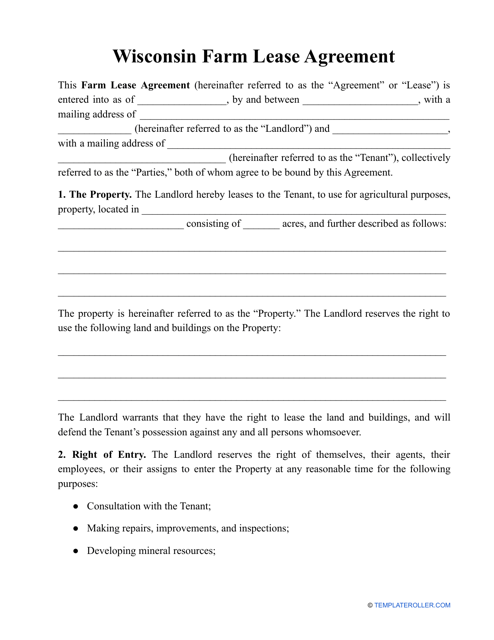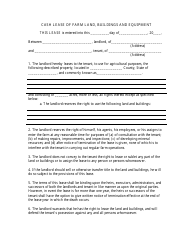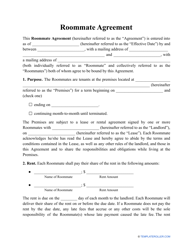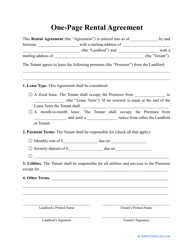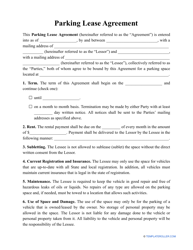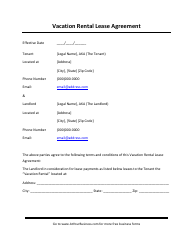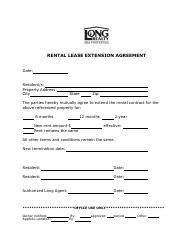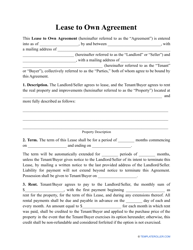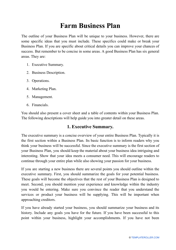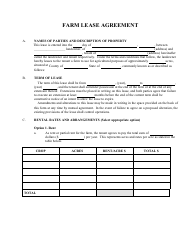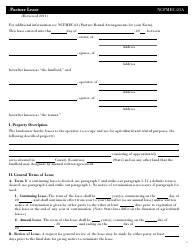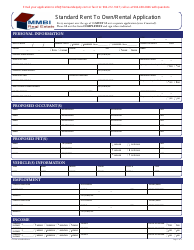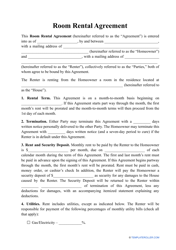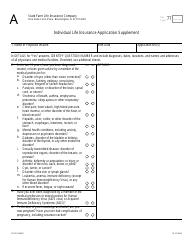Farm Lease Agreement Template - Wisconsin
The Farm Lease Agreement Template - Wisconsin is a legal document used between a landlord (the owner of the farm) and a tenant (the person or entity leasing the farm) in the state of Wisconsin. It outlines the terms and conditions of the lease agreement for the use of the farm land.
The farm lease agreement template in Wisconsin is typically filed by the landlord or farm owner.
FAQ
Q: What is a farm lease agreement?
A: A farm lease agreement is a legally binding contract between a landowner and a tenant farmer, outlining the terms and conditions for renting and using agricultural land for farming purposes.
Q: Why is a farm lease agreement important?
A: A farm lease agreement is important as it helps both the landowner and tenant farmer establish clear expectations and responsibilities, ensuring a smooth and mutually beneficial agricultural operation.
Q: What should be included in a farm lease agreement?
A: A farm lease agreement should include details about the rented land, duration of the lease, rent payment terms, responsibilities for maintenance and repairs, and any specific provisions related to the farming activities.
Q: Is a written farm lease agreement required in Wisconsin?
A: No, a written farm lease agreement is not required in Wisconsin, but it is strongly recommended to have one to avoid any misunderstandings or legal disputes.
Q: Can a farm lease agreement be terminated before the agreed-upon duration?
A: Yes, a farm lease agreement can be terminated before the agreed-upon duration if both parties mutually agree or if there is a breach of terms specified in the agreement.
Q: What are the common types of farm lease agreements?
A: The common types of farm lease agreements include cash rent leases, crop share leases, and flexible cash rent leases, each with their own terms and advantages.
Q: Do I need to consult a lawyer before signing a farm lease agreement?
A: While not mandatory, it is generally recommended to consult a lawyer before signing a farm lease agreement to ensure you fully understand the legal implications and protect your interests.
